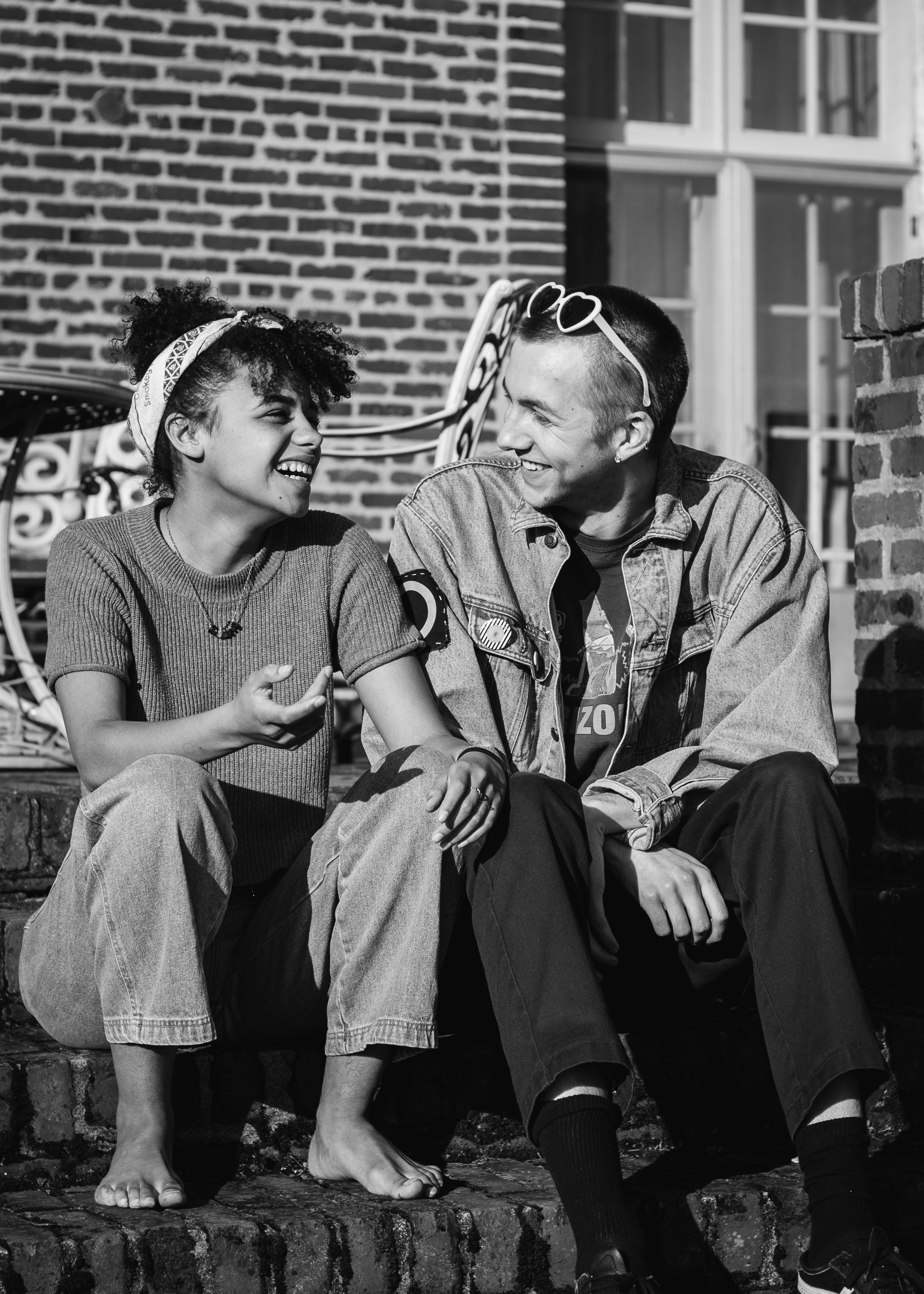
On March 16, Inclusion and Multicultural Engagement (IME) hosted a lecture by Rick Williams titled “Navigating Interracial Relationships” in the Frank Manor House. Williams identifies as mixed, Black, queer, trans, disabled, a poet, an activist and a workshop leader. They shared their unique perspective on interracial dating and the power dynamics that inherently accompany it. Williams’ lecture was intersectional and multifaceted, discussing topics from blatant racism, microaggressions, disability and hair politics.
IME Student Ambassador Miguel Posada ’19, after receiving great feedback from a Facebook group dedicated to people of color in Portland, decided to hold the event focused on interracial relationships. Posada said that interracial relationships are a good topic “because it’s not something that I’m super familiar with, and I think it’s important [to consider] for dynamics in friendships and beyond that.”
The lecture was given in a narrative style. Williams began by discussing their experience being in interracial relationships and finished by highlighting key things they learned, taking intriguing twists and turns that chased a number of other topics in the middle.
“I feel like it was really a different kind of learning that I’m not super used to because of the whiteness here. It was the type of learning where I’m learning from a person of color and their experience,” Posada said. “It’s not like I’m learning from a book and through reading and stuff like like that. I’m learning straight up from a person’s life.”
Williams’ experiences conveyed to the small audience a bank of plentiful, but painful, knowledge. Prefacing the beginning of their story about their first interracial relationship, Williams said bluntly, “I did not realize they were racist until we broke up.” They shared that this seemingly simple idea is incredibly common throughout interracial relationships.
Williams’ general lesson to the audience was to be aware of signs that may signal trouble down the road. For instance, a “warning bell” according to Williams is when a white person does not want to talk about race. In fact, they quote a classic line from one of their white partners when asked to talk about race: “I can’t talk about this now. Let’s talk later.” When this “later” never comes, this is a major red flag.
Williams talked about deeper, more painful things as their lecture went on. They gave the audience a look into the family pressures to assimilate, the struggles of being black and learning about the politics of hair, and the pain of truly loving a person who is ignorant about race.
At an emotional peak in their narrative, Williams asked the audience, “I need to be able to speak, but if they’re not going to be willing to listen how can I ever be in a relationship with them?”
To those seeking to make an interracial relationship work, Williams specifies two things that are important: appropriate allyship (including education about issues) and communication.
“You have to set aside time,” Williams directed. “It is not on you to prove your white partner isn’t racist; it’s on them. Listen to people if they say that your white partner makes them uncomfortable.”
Williams also made it clear that it is not the person of color’s job to educate the white person in the relationship. Another thing that Williams clarified for white people who would like to ensure that their interracial relationship is positive and healthy was that, “You’re going to f*** up. Don’t make it about you instead of focusing on the situation.”
Williams provided general rules to follow to be a white ally, such as calling out microaggressions if you see them happen to your partner and not speaking over or for your partner of color.
“Open the door so I can step through,” said Williams.
Kellsy Nava ’19 said, “I liked how they highlighted the fact that both POC and whites need to actively learn, especially if they want to be allies.”
Williams referred to a white friend of theirs who is a good model ally. Williams said that he immediately without question challenges problematic and racist situations, but “if I say ‘ehh-’ he steps back and lets me have a voice.”
While attendance was modest, Posada said that he felt it was successful in “bringing the concept [interracial relationships] to the campus, introducing it, and being able to establish it as a concept throughout years to come.” He said that he hopes this topic can be “integrated into the learning process of white and black and brown students [at LC].”
Subscribe to the Mossy Log Newsletter
Stay up to date with the goings-on at Lewis & Clark! Get the top stories or your favorite section delivered to your inbox whenever we release a new issue.

Leave a Reply